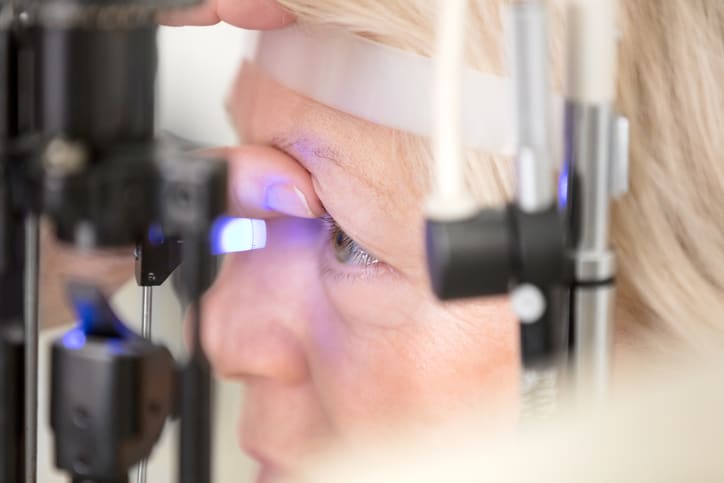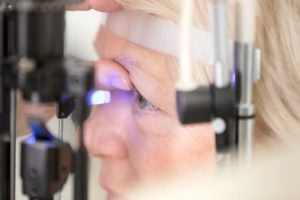Glaucoma prevention tips

 The second leading cause of irreversible blindness globally, glaucoma affects more than three million people in the United States alone. Typically, it doesn’t have any symptoms, and many people don’t realize they have glaucoma until it is at an advanced stage. There’s no cure for glaucoma, though the symptoms can be treated and the progression of the disease slowed if it’s caught early. There are, however, some steps you can take to prevent glaucoma.
The second leading cause of irreversible blindness globally, glaucoma affects more than three million people in the United States alone. Typically, it doesn’t have any symptoms, and many people don’t realize they have glaucoma until it is at an advanced stage. There’s no cure for glaucoma, though the symptoms can be treated and the progression of the disease slowed if it’s caught early. There are, however, some steps you can take to prevent glaucoma.
- Protect your eyes. Wear protective eyewear any time you’re participating in sports, doing a home improvement project, or engaging in any other activity that puts your eyes at risk. Injury to the eye can cause secondary or traumatic glaucoma. Prevent overexposure to UV rays by wearing sunglasses or a wide-brimmed hat when you’re outside.
- Exercise regularly. Moderate exercise, at least three times a week, can lower your risk of glaucoma. Avoid exercises like headstands, which can increase intraocular pressure, one of the major risk factors for glaucoma.
- Fill your diet with nutrient-dense foods. Foods that support eye health include dark green, yellow, and orange fruits and vegetables, fruits and vegetables high in vitamin C, and foods with vitamin A, like sweet potatoes, mangoes, milk, egg yolks, and liver. Foods that contain vitamin E, like eggs, wheat germ, nuts, vegetable oils, and whole grains, are good for your eyes, as are foods with vitamin D, like fatty fish and egg yolks. Also important are foods with zinc, like oysters, red meat, poultry, beans, and nuts, and foods with omega-3 fatty acids, like walnuts and wild salmon.
- Do the things that you already know support your overall health. Maintain a healthy weight, don’t smoke, keep your blood pressure under control, and limit caffeine consumption.
- See an eye doctor regularly for exams. The single most important thing you can do to protect your eyes from the damaging effects of glaucoma is to have regular eye exams. Before age 40, you should be seen every two to four years, and then every one to three years up to age 54, moving to every one to two years at 55 of over. If you’re a person with high-risk factors, like African heritage, diabetes, or a family history of glaucoma, you should be tested for glaucoma every year or two after you turn 35. The best way to prevent vision loss from glaucoma is to catch the disease in the early stages so that you can receive treatment to slow its progression.
If you are looking for an eye doctor, the Gerstein Eye Institute in Chicago can help. Since 1968, the Gerstein Eye Institute has been providing exceptional ophthalmologic care to patients in the Chicago area. With decades of experience in ophthalmology, our certified professional staff members work hard to provide the kind of personalized care that keeps patients coming back year after year, eventually entrusting the eye health of their children and grandchildren to us as well. To schedule an appointment, call us at (773) 973-3223 or contact us through our website.
